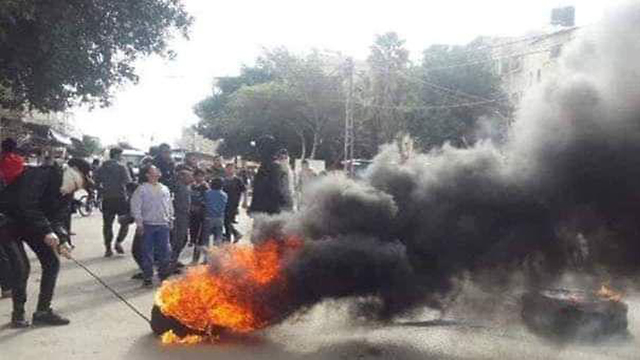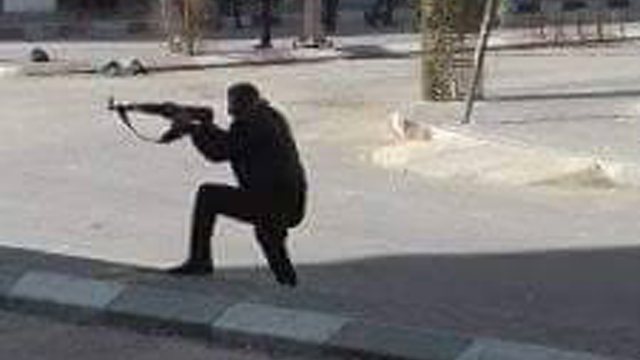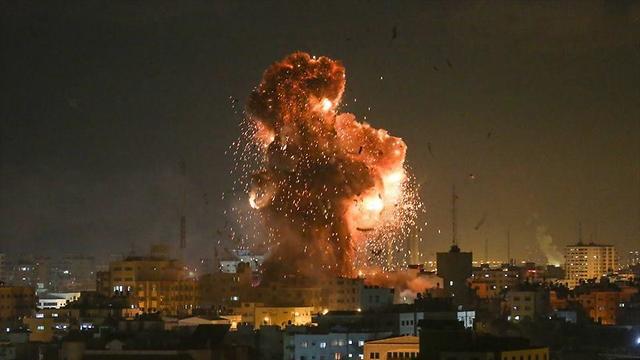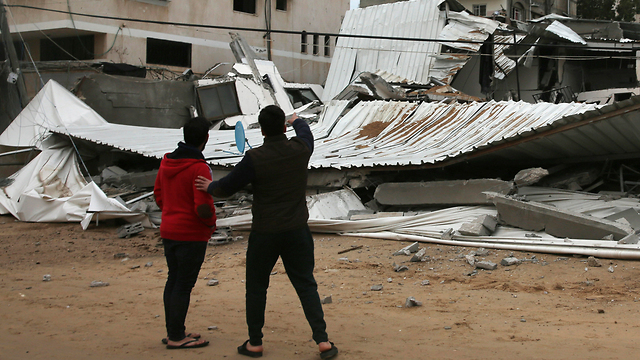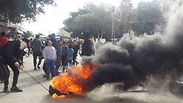
The wet dream of successive Israeli governments is currently being realized as thousands of Gazans take to the streets to demonstrate against Hamas. These are not spontaneous and isolated demonstrations, but rather the institutionalized organization of a popular uprising under the slogan "We want to live."
The protest is driven, for the first time, by an ordered leadership composed of journalists, academics and online media stars.
The fear ceiling has been smashed. Despite the violent response by the Hamas security forces, the demonstrators took to the streets in Jabalya, Shati, Khan Yunis, Dir al-Balah and Moasi for four days. And there were thousands of protesters.
Gazans are also appearing openly on Palestinian Authority television and social networks to strongly criticize Hamas leaders Yahya Sinwar and Ismail Haniyeh, Hamas' new taxes and the cost of living.
On Friday night, Hamas arrested 150 of the leaders of the uprising, but the demonstrations continued Saturday and Sunday. Journalists like Mustafa Ayyash and Osama Kahalut, two of the leaders of the uprising, were arrested and severely beaten. Their hands were broken, but they were released and their fight goes on.
In such a situation, it is no wonder that Israel was willing to accept Hamas' claim that a "mishap" led to the firing of two Fajr missiles at Tel Aviv on Thursday. Israel is ready to absorb many more "mishaps" of this kind as long as the popular uprising against the Hamas regime continues and even gains momentum.
Anyone who tells savvy Gaza sources that the rocket fire was down to a "mishap" will be met with laughter. As far as they are concerned, it was no such thing. Everything is directed by Hamas to create a distraction from the internal protests in the Strip.
The goal was to divert attention to the confrontation with Israel. It is likely therefore, that there will be more and more such "mishaps" as the protests gather steam. The rocket fire on Thursday is evocative of a previous "mishap" last October, when two rockets were fired at Be'er Sheva, hitting a family home.
Prime Minister Netanyahu wisely decided to accept the version of events presented to him by the Egyptians and his intelligence agencies, of a "mishap" that surprised even the Hamas leadership. This is primarily because the IDF prefers to wait for the summer to destroy Hamas' military force, for in the winter it is more difficult to conduct military operations within a densely populated civilian area.
Therefore, Israel will swallow any story or excuse to delay a confrontation with Hamas until a time when the weather conditions are more suitable, the Knesset elections have come and gone and the army has completed its preparations for such an operation.
Moreover, Israel has no interest in interfering with welcome internal opposition to the Hamas rule that is brewing in the Gaza Strip. The chances of this opposition being able to topple Hamas are low, but in the meantime, its strength is eroding. And that's not something to be sniffed at.
What are the chances that the shooting at the Dan region was indeed a mistake? If we do take the claim at face value, the most likely cause is human error. Hamas members are supposed to check the soundness of the missile systems every few months, so why would they do it now, at precisely nine o'clock at night, in the pouring rain?
Could Hamas operatives have gone to test the long-range launchers? It is highly unlikely. There is also the possibility that the rockets were triggered by an external source, such as a lightning strike or an opponent of Hamas. But again, this is highly unlikely.
The only sensible option remaining is to accept that Hamas regularly trains long-range rockets at targets in Israel. These are Iranian-made Fajr-5 rockets, which arrived in the Gaza Strip about 10 years ago and are ready for immediate launch. There is also a locally produced version called the M-75, and firing them in pairs makes it harder for Israel's Iron Dome missile defense system to intercept.
But the Gaza rockets are inaccurate. Their engines burn for less than five seconds, so side winds like the ones over the Gaza region on Thursday night could push them off target y several kilometers.
The first rocket landed in an unpopulated area in Holon. The second exploded in midair, a familiar and frequent malfunction for these rockets. Either the engine exploded or the detonation mechanism was triggered prematurely.

Either way, Hamas intended to drag Israel into some kind of response that would distract domestic public opinion from the internal battles breaking out on the streets of Gaza. Netanyahu was right to choose a measured response and not rushing to convene his security cabinet, thus avoiding any political pressure to deliver a severe blow to Hamas' military wing.
Hamas' main lifeline is economic aid built into an Egyptian plan for calm, with the participation of Israel and the United Nations. Meanwhile, the Palestinian factions – Fatah, Islamic Jihad and the Popular Front for the Liberation of Palestine - have recently issued a joint statement calling on Hamas to ease living conditions for the Gazan people.
On Sunday night they issued another announcement, calling on Hamas to withdraw its forces from the streets. The Gaza street is speaking in the language of a budding revolution. And Israel – quite rightly – is letting these internal events to develop. Wiping out Hamas can always come later.















